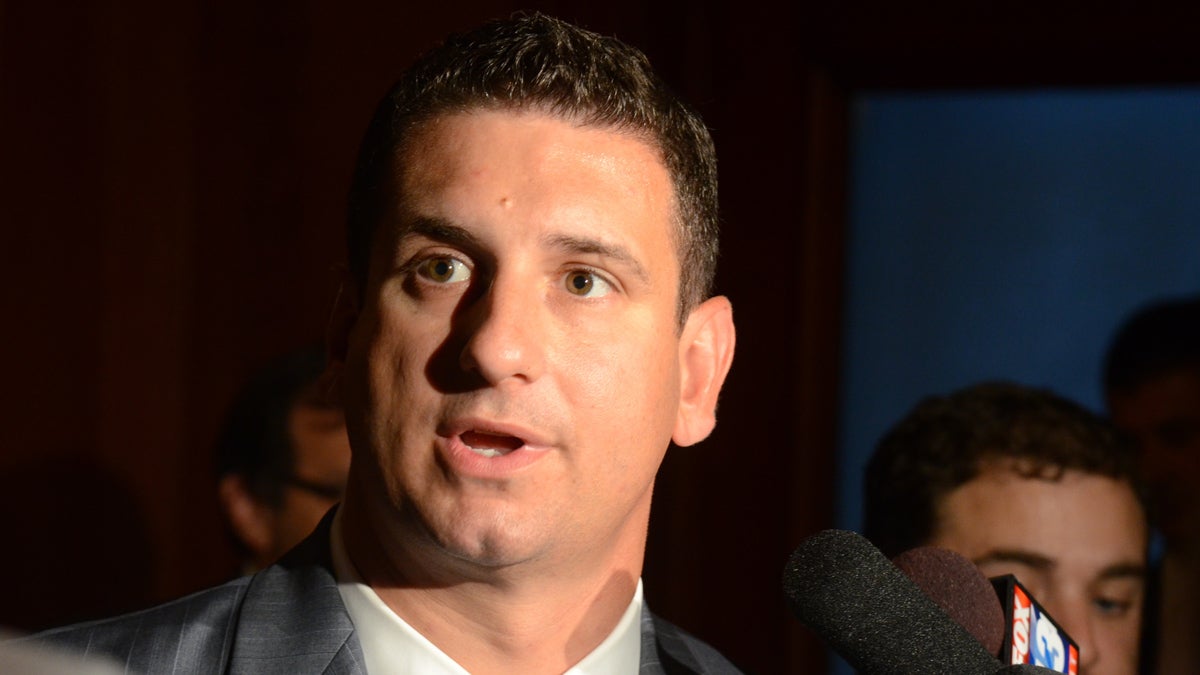With new session started, Pa. lawmakers turn to budget deficit

Pennsylvania House GOP leader Dave Reed advocates reshuffling and combining government agencies in a bid to cut spending. (Marc Levy/AP)
New members have officially been sworn into the Pennsylvania Legislature.
But the first day of the new session saw further entrenchment of Harrisburg’s partisan divide. Republicans shored up their majorities in the House and Senate, where they’ve often clashed with Democratic Gov. Tom Wolf.
Now, lawmakers are turning their attention to legislative priorities in the new session.
Both parties name similar goals — battling the commonwealth’s structural deficit and balancing its lopsided budget. But despite early shows of unity, Democrats and Republicans already seem opposed on how to accomplish that.
Wolf and Democratic lawmakers have long favored broad tax increases to balance the state budget.
But Republicans renewed their pledge to avoid any type of hikes.
Many, like House GOP leader Dave Reed of Indiana County have advocated reshuffling and combining government agencies in a bid to cut spending.
“We get to have a conversation about restructuring a government that has looked the same for 40 or 50 years,” Reed said in an address to House members.
Republican Rep. Seth Grove of York County said he’s confident Pennsylvania will get some help from the federal government.
“I think with the Trump administration we have an opportunity to work with the federal government on alleviating significant federal mandates and burdens that are driving costs, particularly in the Department of Human Services,” he said.
In his address, Democratic Appropriation Committee Chair Joe Markosek of Allegheny County cautioned that the Legislature is “quickly running out of the one-time revenues, fund transfers and other accounting gimmicks used in previous budget years.”
The day also featured some rules changes. Notably, the House Ethics Committee will no longer be able to investigate complaints against members within 60 days of an election in which they’re a candidate.
Two new committees were also added, including one for Government and Financial Oversight in the Appropriations Committee.
WHYY is your source for fact-based, in-depth journalism and information. As a nonprofit organization, we rely on financial support from readers like you. Please give today.


